Rose water is the fragrant liquid distilled from fresh rose petals. It is a pantry staple throughout the Mediterranean and Middle East, just a dash adds a delicate floral quality to both sweet and savory foods.
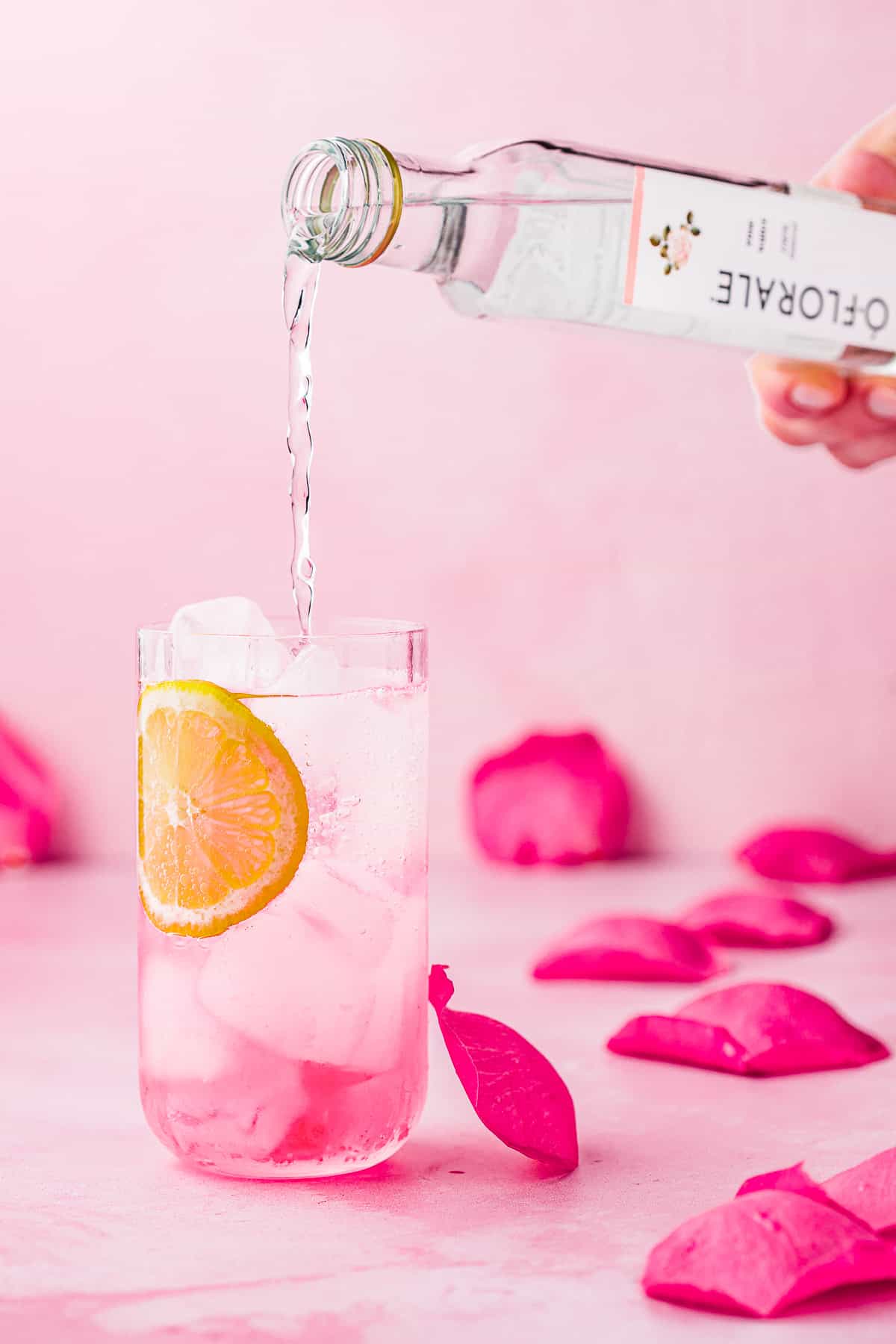
People have used rose water for centuries for both culinary and aesthetic purposes. Many use it today as perfume or facial toner, but this aromatic liquid is also common in traditional Mediterranean and Middle Eastern dessert recipes like Turkish Delight and Baklava.
Don’t get us wrong–we love a good toner! But, since food is our thing, we’re sharing everything you need to know about how to cook with this delicate flavored water, including where to find the best all-natural rose water and some of our favorite rose water recipes.
That said, should you decide to pat it on your face while making some rose-scented milk pudding we wouldn’t blame you!
Table of Contents
What Does Rose Water Taste Like?
Rose water tastes slightly sweet and floral. It enhances the flavor of fruits like strawberries and raspberries, or sweetens the flavor of milk-based recipes like yogurt, puddings, or ice cream. I enjoy it stirred into yogurt with a drizzle of honey and crushed pistachios.
In fact, the actual flavor is hard to describe because it’s really more of an experience than a taste. A dash adds the sensation of tasting the moment you put your face to a beautiful rose in full bloom and take a big, deep breath.
If floral waters are new to you, then start by adding a small amount (1/4 teaspoon) and working your way up. Keep in mind, if you add too much of anything floral, it can taste soapy, but just the right amount is heavenly.
Next time you bake a cake, try swapping the vanilla extract with rose water. You might just find your new favorite flavor.
How Is Rose Water Made?
Rose water is traditionally made through steam distillation, the same process used to flavor many botanical gins. Today, many people make their own version at home by boiling rose petals in water and then straining. While it’ll work in a pinch, it’s not quite the same as capturing the super delicate, pure concentration of rose’s essence that you get from the steam itself. Here are the basic steps:
- The petals are harvested. Roses are harvested when they’re in full bloom.
- A distillation apparatus is set up. A large pot is filled with water and placed over a heat source with a condenser and a collection vessel. The heat source is then fired up to bring the water to a boil.
- The rose petals are boiled. The freshly harvested rose petals are added to the boiling water.
- The steam is collected. The steam and essential oil vapor rise and pass through the condenser.
- The steam is condensed. The condenser cools everything down, causing it to condense back into a liquid–known as rose water–which drips into the collection vessel.
- The rose water is purified. The liquid is carefully separated from any remaining traces of water or oil, then filtered to remove any impurities or sediment.
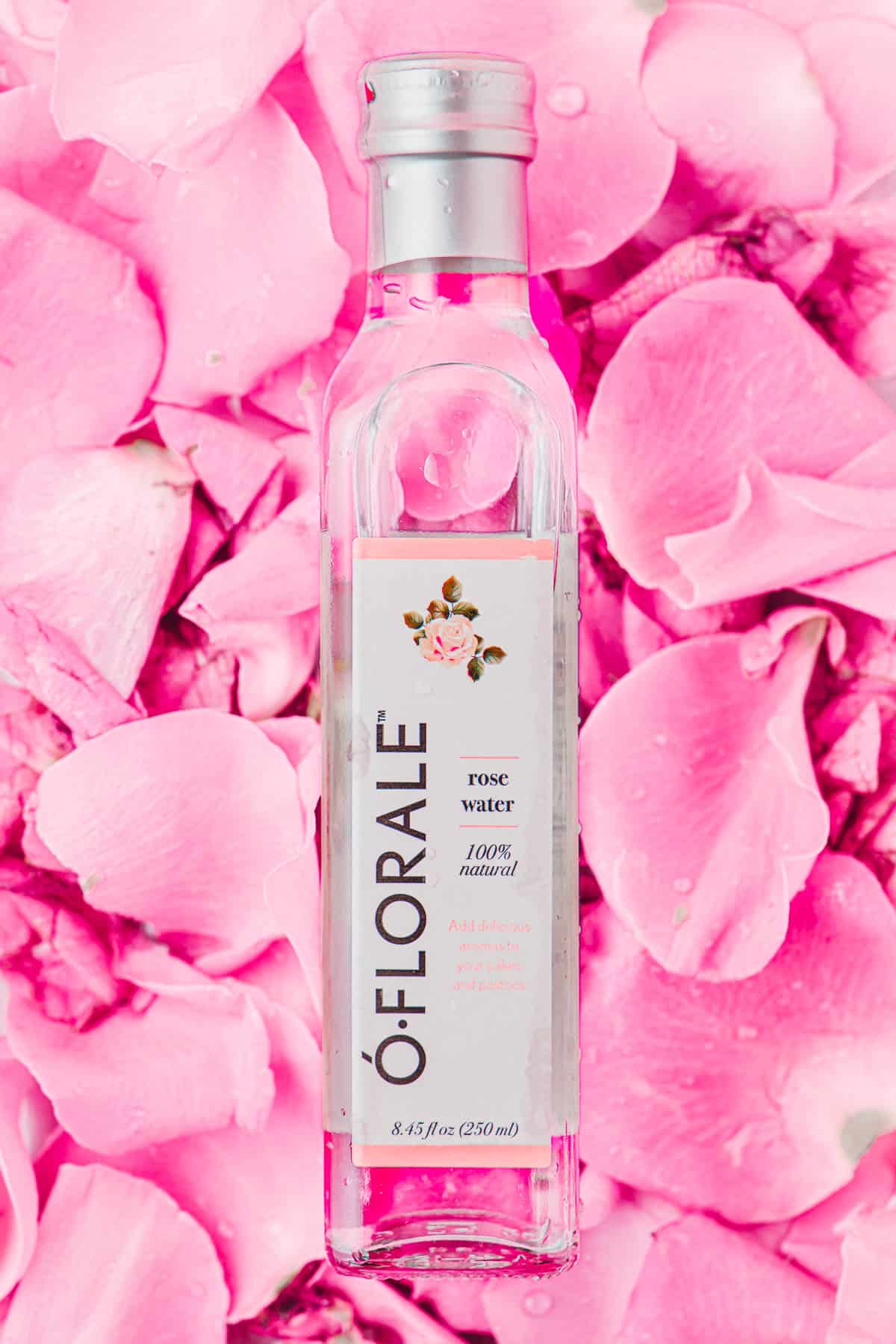
Where to Buy and What to Look For
Buy rose water online (we sell it in our shop here at The Mediterranean Dish), or at a specialty grocery store or Middle Eastern market. There are two main types of rose water: food grade and cosmetic. To cook with rose water, make sure you’re buying food grade rose water. You can use the food grade rose water for cosmetic purposes, but you should not use the cosmetic kind in food.
Here is what to look for in a high quality product:
- It’s a distillate: Meaning it uses the distillation process we covered above instead of simply boiling and steeping rose petals. Some will say this on the label, others you’ll have to research the brand.
- Water and roses only: The only ingredient on a label should be 100% rose water. Look for an all-natural rose water free from additives, dyes or preservatives.
We have tested many purveyors over the years, and the most delicately flavored, pure product we’ve found is from O•Floralé.
The company is based in Lebanon, and they harvest spring Damask Roses at dawn. When ready, they use a traditional water distillation process heating the petals over very low temperatures. The concentrated liquid captures that sensation of taking in a fresh rose’s aroma—just the way we like it!
How to Cook with Rose Water
You’ll find rose water in many traditional recipes, but you don’t need to be limited to those applications. Here are some ideas for incorporating rose water into your everyday meals:
- Beverages: Experiment with adding just a 1/4 teaspoon to your pitchers, from cocktails to lemonade. Taste and add more if you’d like, but remember too much and it’ll taste soapy.
- Compotes: We love a splash in our strawberry compote, but you can add 1/4 teaspoon to any fruit compote for another layer of complexity.
- Puddings: From Middle Eastern staples like Mahalabia (Milk Pudding) to burbara (wheat berry pudding) to overnight oats and chia pudding.
- Add it to yogurt, frosting, or ice cream: Light floral flavors go very well with cream, giving them an unexpected Mediterranean flair.
- Salad dressings: Just a splash adds an added depth of flavor, as with our summer fruit salad.
- Cakes: Add a splash to both the batter and frosting for an extra layer of intrigue and romance, as with Persian Love Cake.
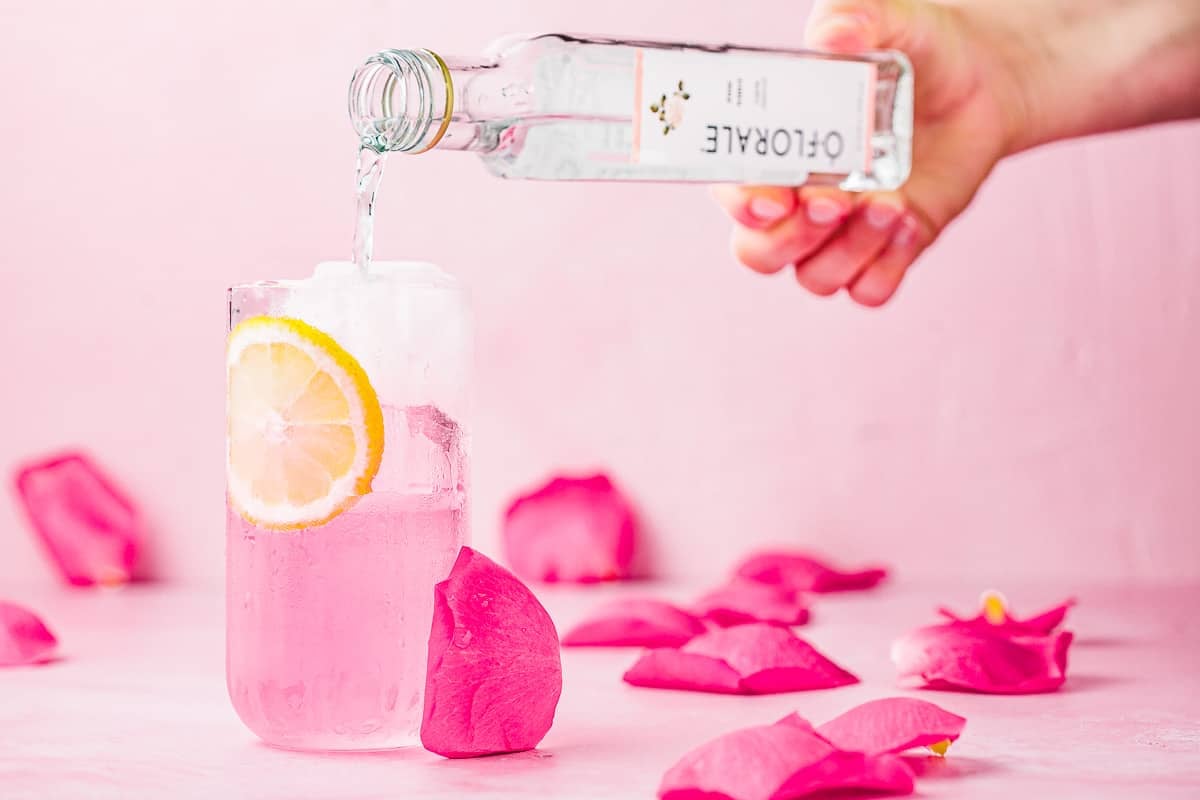
History of Rose Water
The ancient Romans infused wine with rose petals but the process of distilling steam to create rose water has its roots in ancient Persia. Scholars and physicians in what is now Iran first documented the distillation process as early as the 9th century.
Rose water became hugely popular in the Middle East during the early Middle Ages. There, they used rose water not just for desserts but in medicine, for religious ceremonies, dentistry, and more. Crusaders later introduced the fragrant water to Europe, where it became a luxury commodity among the aristocracy.
Eventually, rose water made its way to the States where it was widely used throughout the 18th and early 19th century. You can find multiple references to the use of rose water in the first U.S. cookbook called, American Cookery, written in 1796 by Amelia Simmons. Although, vanilla slowly replaced the use of rose water in many U.S. home kitchens, we think it’s making a come back!
Today, it’s a beloved ingredient used in Middle Eastern, Asian, and Mediterranean cuisines. However, it is available and used worldwide. The delicate floral note differentiates iconic dishes like French rose macarons and Turkish Delight.
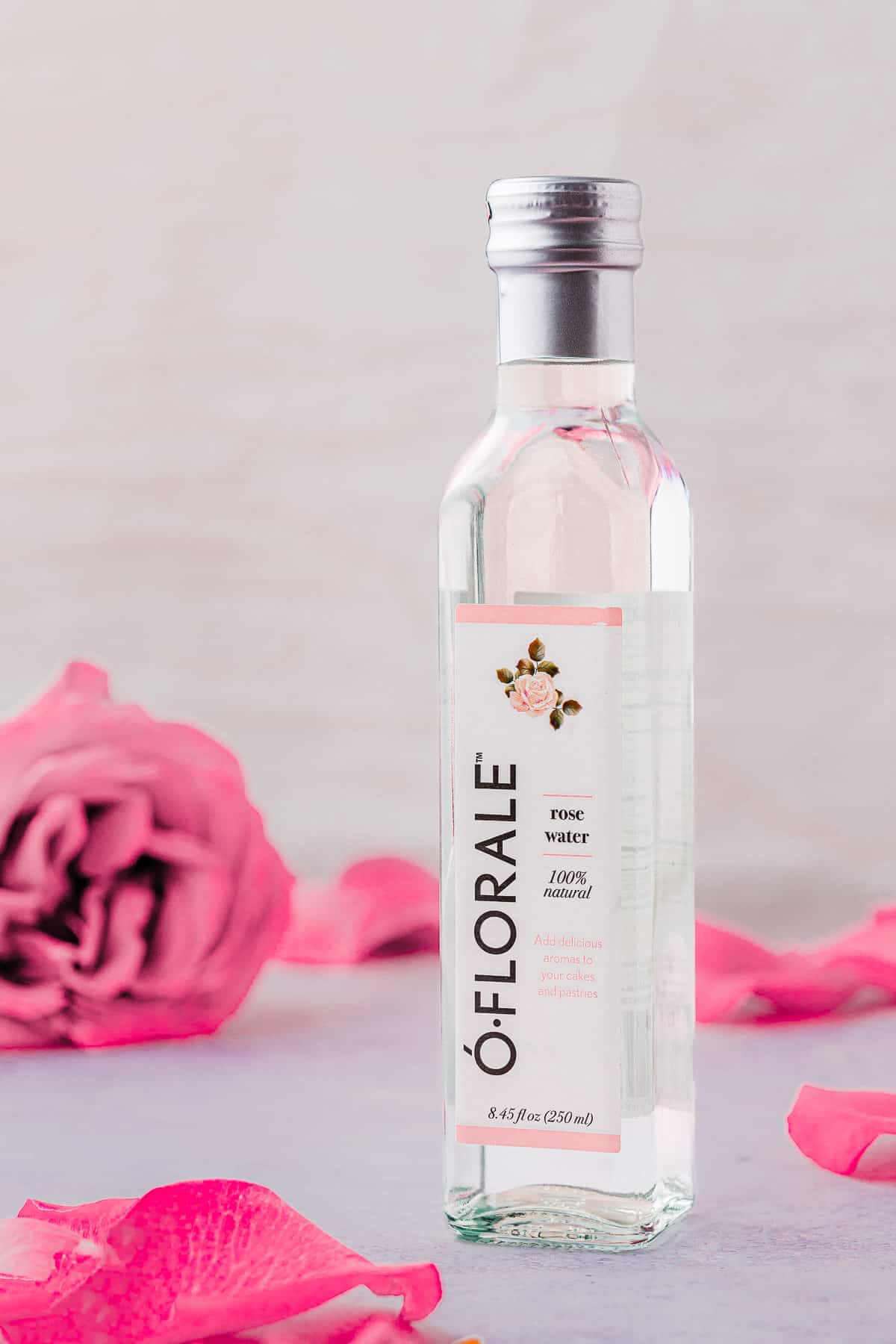
How to Store It
Store rose water sealed in a cool dark place. Unless you’re a Turkish delight fiend—in which case our hats are off to you—a bottle will last for years if you store it properly. Simply give it a smell to make sure it’s still fresh.
Try Rose Water in These Recipes
Desserts
Turkish Delight (Lokum)
Middle Eastern
Mahalabia (Rose Water Milk Pudding)
Drinks
Strawberry Lemonade
Browse all Mediterranean recipes.
Visit Our Shop.
Bundle and Save!
Level Up Your Pantry with O•Floralé’s All Natural Rose Water, Orange Blossom Water, and Pomegranate Molasses.
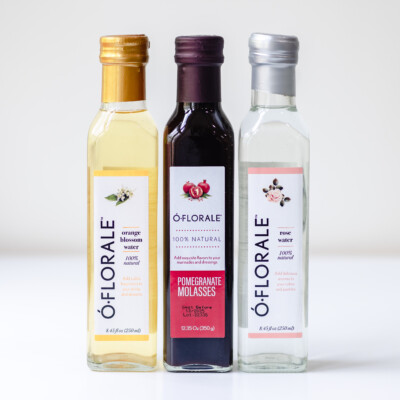


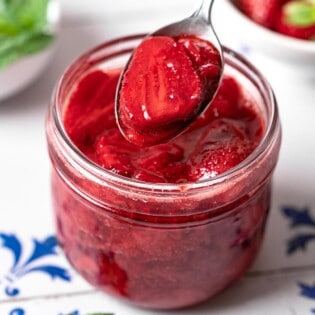
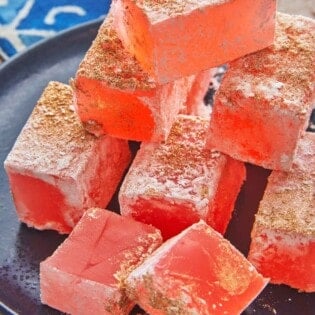
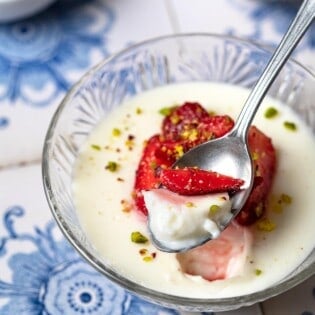
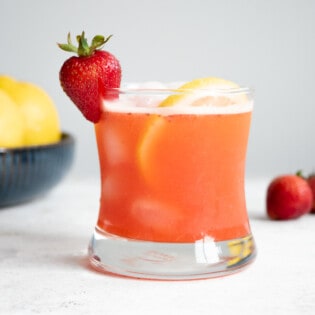
I am so excited to get my order and try the Rose Water. I’ve been looking through the recipes to see which one I want to start with and it’s going to be the pudding……….I have all of your oils and spices. Amazing
Does rose water have alcohol in it? Asking for a halal household.
Thanks!
Hi, Terri! Our rose water does not have alcohol.
Hi, Terri. Our Rose Water does not contain any alcohol. You can click here to find it.